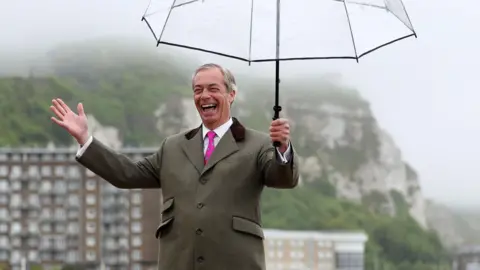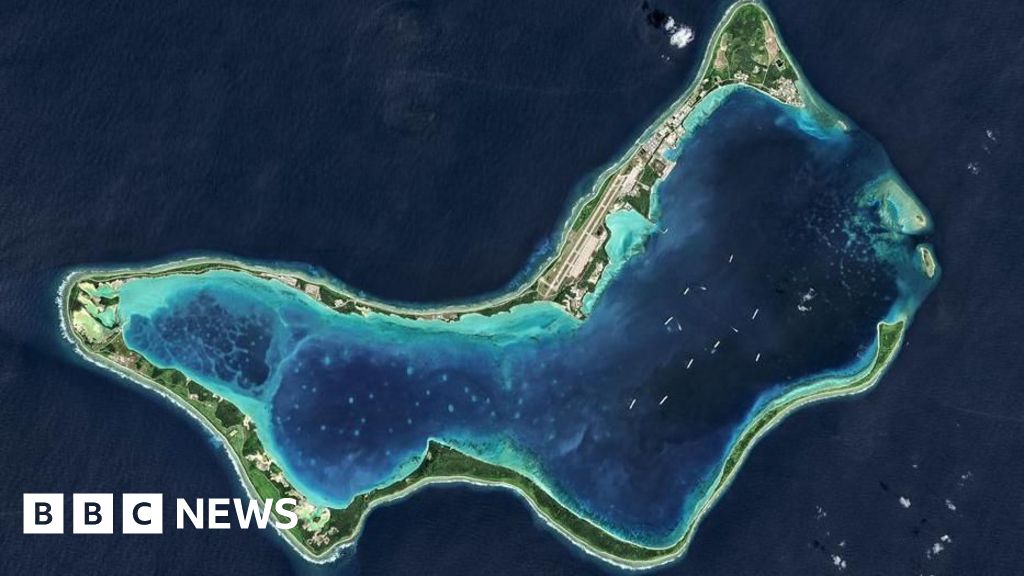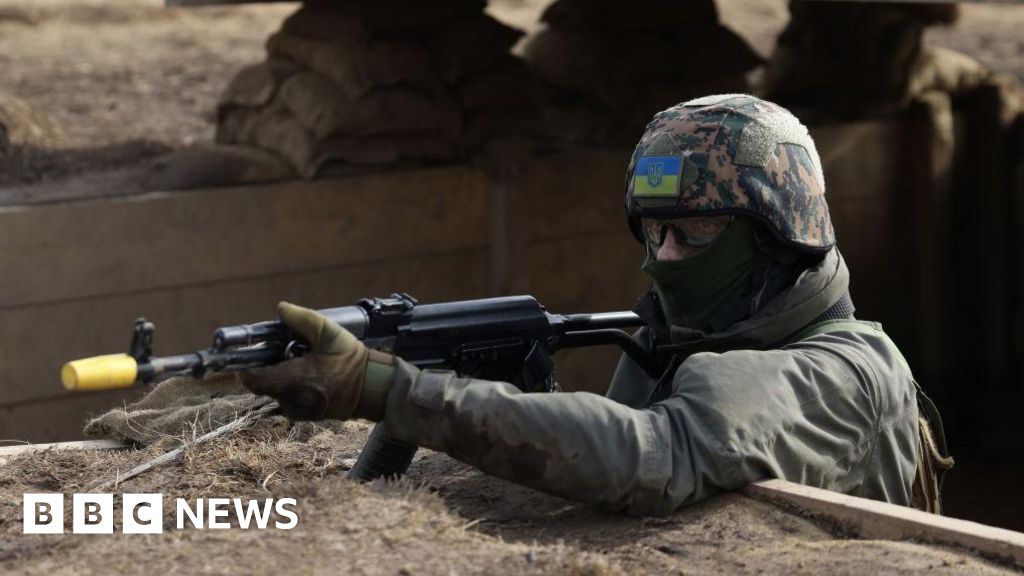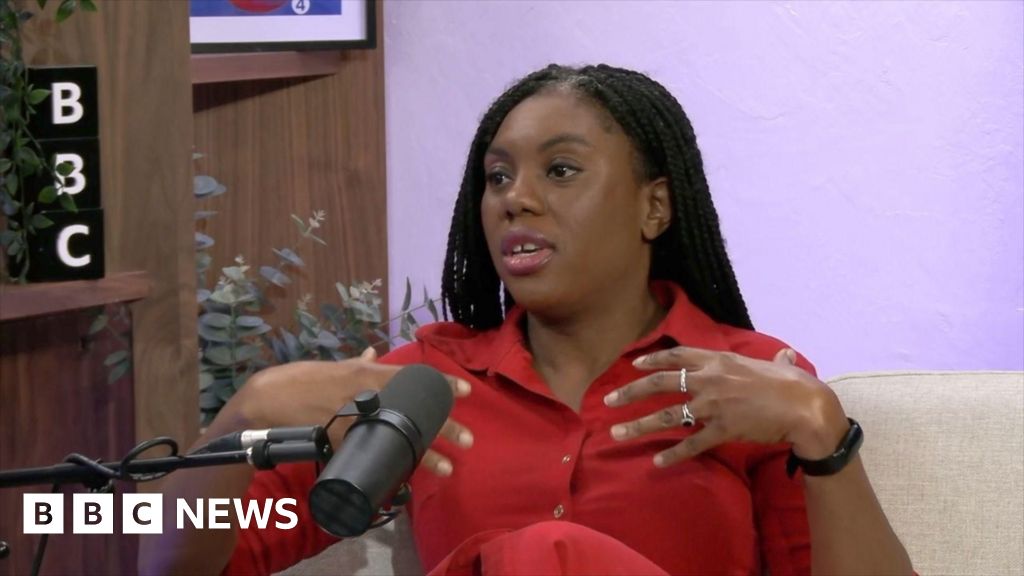ARTICLE AD BOX
8 minutes ago
Chris Mason,Political editor, @ChrisMasonBBC

 EPA
EPA
Nigel Farage following a press conference in Dover on Tuesday
Nigel Farage is one of the most influential politicians of our time.
Quite the achievement for a man who has never been an MP, despite trying to become one seven times.
Would the UK have left the European Union, would people in the UK have ever had a say on EU membership, without him? Possibly not.
Maybe you love him, maybe you really don’t.
Nigel Farage has made it his life’s work to disrupt, delight, dismay, horrify, and he reckons he is not done yet.
We reporters squeeze into an upstairs room of the Royal Cinque Ports Yacht Club, overlooking the English Channel.
He had already announced that he wouldn’t try to win a seat in Parliament himself at this election, prompting a reporter from The Sun to tease him that he was a chicken.
He argued that from the bitter experience of more than half a dozen defeats, he had little chance of success without working a seat for months in advance.
Doing so would also tie him geographically to his chosen patch for much of the contest, which is why I reckon what he has said now is more significant than what he said last week.
His capacity to be – potentially at least – a significant influence on this election is arguably greater by attempting to stride the national stage rather than plough a narrower and probably doomed personal furrow in a particular constituency.
And stride the national stage is exactly what he is going to try to do.
Mr Farage’s choice of backdrop, Dover, was intentional.
Immigration, the topic that electrified the arguments around Brexit, arguably turning a relatively niche issue about sovereignty and governance into a mainstream concern, is the spine of his argument again.
Little wonder: the Conservatives and Labour grapple about searching for solutions to the issue of small boat crossings, with numbers high.
And legal migration numbers are sky high too.
Reform UK: Labour and Tories are both 'social democrats', says Nigel Farage
I have known Nigel Farage for the best part of 20 years.
He is a master of the theatrics of politics, with a ready knack for oratory and a capacity to ad lib in fluent argument – and spot and capitalise on gaps in the political debate left by the Tories and Labour.
He thinks illegal and legal migration amount to a colossal gap.
He claims immigration poses a “national security emergency".
And he has been accused of Islamophobia for saying war in the Middle East is prompting a small but growing number of people in the UK to vote based on religion, along what he calls “sectarian” lines.
But when I challenge him on the suggestion critics make that he is divisive, he argues: “I am willing to say things others aren’t".
Don’t some find this inflammatory, I push him.
“No, they find it embarrassing. And difficult. And awkward. It is happening because there is no debate about it because, and they will all cry at me because, Labour started this, with a completely irresponsible immigration policy and the Conservatives have accelerated it.”
His ambition is huge – and amounts to no less than seeking to replace the very party he joined then left, and then provoked, enraged and enthused for decades: the Conservatives.
Right now that seems highly unlikely, however they perform in five weeks time.
But then again, 20 years ago the UK leaving the European Union didn’t seem likely either.
For now, it is the short term that matters.
Can he neutralise that Conservative attack line that claims a vote for Reform UK, of which he is honorary president, is a vote to put Keir Starmer in Downing Street?
Lots of Tories were already haunted by Reform and Nigel Farage grinning his way back to prominence will magnify their spooks.
Mr Farage told me it was nailed on Labour would win the election and the Conservatives would be annihilated so people could vote Reform without fearing any wider consequence caused by them.
Well, hang on: not a vote has been cast yet and Tories do fret that support for Reform UK disproportionately comes from people who voted for them in 2019.
Let’s see.
We are a week into the general election campaign.
Each party is getting into its stride and finding its voice.
The cacophony of voices grows louder and the pace will continue to quicken.
The addition of Nigel Farage’s voice adds intrigue, personality, jeopardy, excitement and anger in roughly equal measure.



 6 months ago
32
6 months ago
32








 English (US) ·
English (US) ·